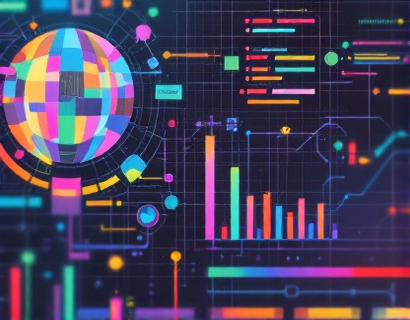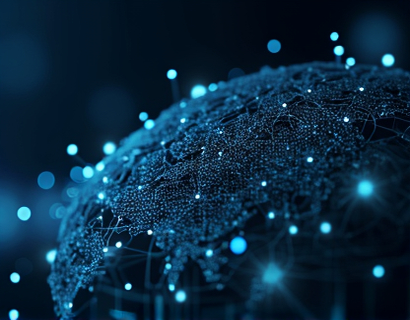Maximizing Productivity in the Digital Age: Harnessing the Power of AI and Cryptocurrency for Next-Gen Solutions
The digital age has ushered in a revolution in how we work, communicate, and manage our daily tasks. At the forefront of this transformation are two pivotal technologies: Artificial Intelligence (AI) and Cryptocurrency. These cutting-edge innovations are not just reshaping industries but are also offering unprecedented opportunities to enhance productivity and efficiency. This article delves into how the synergy of AI and cryptocurrency is creating next-generation solutions that tech-savvy professionals and early adopters can leverage to maximize their digital productivity.
To begin with, let's explore the role of AI in boosting productivity. AI, with its ability to automate repetitive tasks, analyze vast amounts of data, and provide insights, is a game-changer in the workplace. By automating mundane tasks, AI frees up valuable time for professionals to focus on higher-value activities that require human creativity and critical thinking. For instance, AI-powered tools can manage scheduling, handle email filtering, and even assist in data entry, significantly reducing the time spent on these tasks.
One of the most impactful applications of AI is in the realm of predictive analytics. By analyzing historical data, AI algorithms can forecast trends, customer behaviors, and potential issues before they arise. This foresight allows businesses to make informed decisions, optimize operations, and stay ahead of the competition. For example, in the field of project management, AI can predict project timelines and resource requirements, ensuring that projects stay on track and within budget.
Moreover, AI-driven collaboration tools are transforming the way teams work together. These tools use natural language processing and machine learning to facilitate seamless communication, document management, and task coordination. For instance, AI can summarize meeting notes, extract key action items, and assign tasks to team members based on their availability and expertise. This not only streamlines workflows but also ensures that everyone is aligned and productive.
Now, let's turn our attention to cryptocurrency and its role in enhancing digital productivity. Cryptocurrency, particularly blockchain technology, offers a decentralized and secure way to conduct transactions and manage data. The immutable nature of blockchain ensures that records are tamper-proof, which is crucial for maintaining trust and integrity in digital interactions. This transparency and security are particularly beneficial in industries where trust is paramount, such as finance, supply chain, and healthcare.
One of the most significant advantages of cryptocurrency in the context of productivity is its ability to facilitate seamless and instantaneous transactions across borders. Traditional banking systems often involve delays and high fees, especially for international payments. Cryptocurrency, on the other hand, enables near-instant transfers with minimal costs, making it an ideal solution for global businesses and remote teams. This efficiency in financial transactions directly translates to increased productivity, as time and resources are not wasted on cumbersome payment processes.
Furthermore, cryptocurrency can be used to create decentralized applications (dApps) that operate on blockchain networks. These dApps can offer a range of productivity tools, from decentralized storage solutions to peer-to-peer marketplaces. For example, decentralized storage services like IPFS (InterPlanetary File System) allow users to store and share files without relying on centralized servers. This not only enhances data security but also reduces the risk of data loss and censorship, ensuring that important files are always accessible.
Another innovative application of cryptocurrency is in the realm of tokenization. Tokenization involves converting real-world assets into digital tokens on a blockchain. This concept can revolutionize various sectors by making assets more liquid and accessible. In the context of productivity, tokenization can be used to create tokenized rewards systems for employees, incentivizing performance and engagement. For instance, a company could issue tokens that employees earn based on their contributions, which can later be redeemed for various benefits or even traded on cryptocurrency exchanges.
The combination of AI and cryptocurrency takes these benefits to the next level. Imagine a scenario where an AI-powered platform uses blockchain to manage a decentralized marketplace for productivity tools and services. This platform could leverage AI to recommend the most suitable tools based on a user's specific needs and work patterns, while ensuring secure and transparent transactions through blockchain. Such a platform would not only enhance individual productivity but also foster a community-driven ecosystem where users can share, rate, and improve tools collaboratively.
To illustrate the practical application of this synergy, consider a hypothetical scenario involving a global team of developers working on a complex software project. Using an AI-driven platform built on blockchain, the team can access a curated library of productivity tools, each recommended based on their individual work styles and project requirements. Task management, communication, and document collaboration are all handled through decentralized dApps, ensuring that all interactions are secure and transparent. The platform's AI engine continuously optimizes workflows, predicts potential bottlenecks, and suggests improvements, all while maintaining a tokenized reward system to motivate and recognize team members' contributions.
Another key aspect of this integration is the enhancement of data privacy and security. AI algorithms can analyze and protect sensitive data by identifying patterns and anomalies, while blockchain's decentralized nature ensures that data is not stored in a single vulnerable point. This dual approach provides a robust defense against cyber threats, allowing professionals to work confidently and securely in a digital environment.
In addition to these technical benefits, the adoption of AI and cryptocurrency can also drive innovation and entrepreneurship. Startups and small businesses can leverage these technologies to create disruptive products and services that challenge traditional paradigms. For instance, a startup could develop an AI-powered virtual assistant that uses blockchain to manage and secure user data, offering a superior alternative to existing solutions. This not only opens up new market opportunities but also empowers entrepreneurs to build scalable and resilient businesses.
For tech-savvy professionals and early adopters, the potential to harness AI and cryptocurrency for productivity is immense. By staying informed about the latest developments and experimenting with new tools and platforms, these individuals can gain a competitive edge in their respective fields. Whether it's through automating routine tasks, accessing decentralized resources, or participating in tokenized incentive programs, the possibilities are vast and exciting.
In conclusion, the convergence of AI and cryptocurrency is paving the way for a new era of digital productivity. By leveraging the strengths of both technologies, professionals can streamline their workflows, enhance collaboration, and secure their digital assets. As these innovations continue to evolve, the potential for transformative change in the workplace is limitless. Embracing this technological synergy is not just an option but a necessity for those who wish to thrive in the digital age.










































